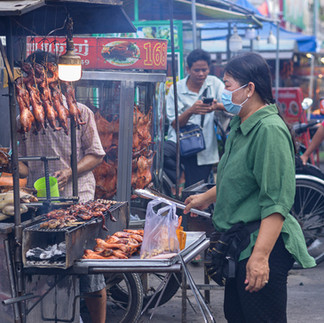Stop Worrying About Your Gear. Start Trusting Your Eye.
- Ian Miller
- Aug 9, 2025
- 2 min read
A Letter to Young Photographers
I say it often. To students. To beginners. To anyone caught in the endless scroll of gear reviews and spec sheets: Stop worrying about your gear. Start trusting your eye.
Because photography isn’t about what’s in your hand. It’s about what’s in your head—and your heart.

🧠 The Myth of the Perfect Setup
We live in a time of abundance. Cameras with eye-tracking autofocus. Lenses that resolve every pore. AI tools that can simulate light, emotion, even reality itself.
And yet, many young photographers feel stuck. Not because they lack talent—but because they’ve been taught to chase gear instead of vision.
Here’s the truth: You don’t need the latest mirrorless body to make a meaningful image. You need intent. You need trust—in your instincts, your timing, your way of seeing.

👁️ The Power of the Eye
Your eye is your most important tool. It’s what notices the gesture others miss. It’s what feels the rhythm of a street corner, the tension in a glance, the poetry in shadow.
Gear can help. But it can also distract. The more you rely on automation, the less you learn to anticipate. The more you chase sharpness, the less you feel the moment.
Trust your eye. It will teach you more than any firmware update ever could.
🧘 Enoughness in Practice
Some of my favorite images were made with “outdated” gear.
A Nikon D700 with a 35mm f/2D
A Fuji X-Pro2 with a single prime
A Canon 1D Mark IV that still earns its place after a decade
These tools aren’t perfect. But they’re honest. And they remind me that photography is a practice—not a performance.
🤖 A Word on AI
AI is changing the landscape. It can generate images, enhance files, and even mimic style. But it can’t witness. It can’t wait for trust. It can’t feel the weight of a moment.
As young photographers grow into their craft, they’ll need to decide: Do I want to simulate beauty? Or do I want to see?
✍️ Closing Thought
So here’s my advice: Start with what you have. Learn its limits. Embrace its quirks. And most importantly—trust your eye.
Because in the end, the best camera is the one that listens. And the best photographer is the one who sees.












